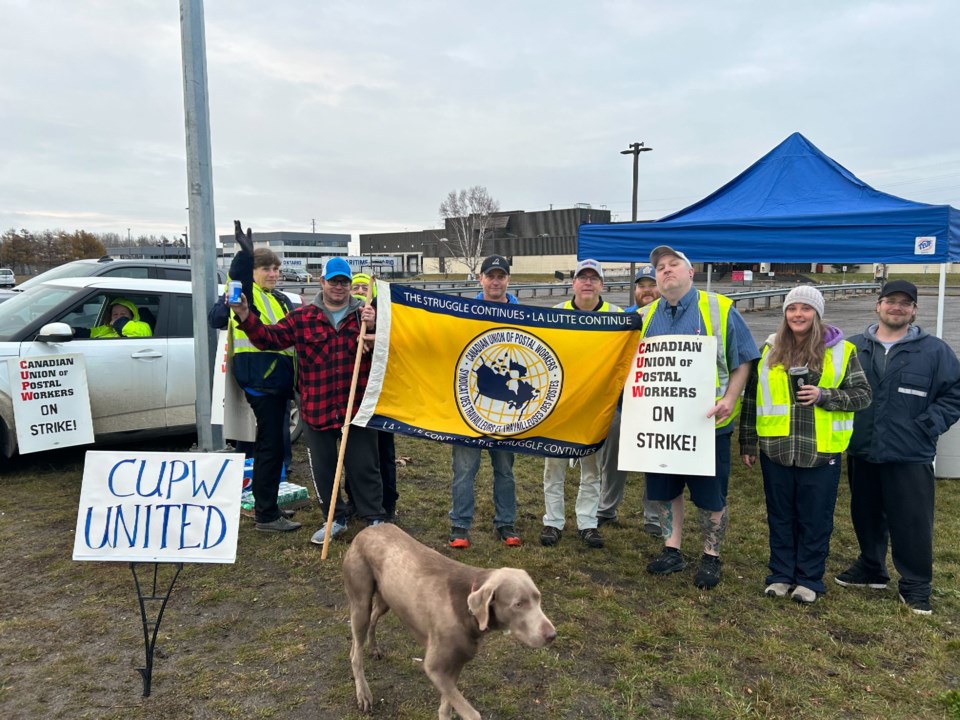THUNDER BAY — Residents in Thunder Bay can once again walk down to collect their parcels and envelopes from their mailboxes on Tuesday.
The resumed mail operations follow the Canada Post and the Canadian Union of Postal Workers (CUPW) reaching an impasse, resulting in local postal workers returning to work after several weeks of striking.
Leo Favreau, the president of CUPW Local 620, spoke on behalf of striking postal workers in Thunder Bay. He said after the national board took a vote and had a long meeting, they also had a meeting and a discussion on Monday night, deciding that the region would return to work.
For now, Favreau said all he knows is that they're supposed to investigate and look into what they can do to help them find a contract.
He has ‘mixed feelings’ about the decision.
“I'm happy for the people who need the money and need to get back to work, but I'm also very upset because there are so many bad things that can come of this. Other unions could be affected by this. It just definitely hurts the process,” said Favreau.
He added, with the labour board ordering them back to work, ‘nothing really has been settled at all.’
“Well, I'm going to be honest and give my honest opinion. Basically, it takes away our right to strike again. This has happened time after time after time. We get ordered back to work and that's why Canada Post does not have to negotiate with us at all, really. There is no fair negotiation,” said Favreau.
When they returned to work at the local plant, he said they would do a ‘work to rule.’
“No, we do our job the best we can and that's it. No, going on above and beyond anymore,” said Favreau.
Until this is settled, Favreau said that's basically the only path they can take now.
Anthony Epp, a local postal worker, is also unhappy and displeased with the return-to-work order. He said he feels like Canada has betrayed him to a degree.
“It seems like I'm a Canadian and I'm a worker and if we're not gonna stand up for my rights here, then it just seems like things are gonna get worse,” said Epp.
When asked how he has adjusted to returning to work, he said getting back to work after four weeks is always a bit of an adjustment, particularly when trying to remember how to do things again.
“It's very routine-based work and to have it disrupted like that really just kind of messes with the flow of it,” said Epp.
“And I think the general feeling is that the length of the disruption and the negotiation tactics that Canada Post Corporation was using were disingenuous and not in good faith and an attempt to stall and intimidate. And we think it went on longer than it should have, but even that said, we still would prefer to keep striking to get what we think we deserve.”
Epp added that because it wasn't their choice and they were legislated back, it feels like they didn't have their contract needs addressed.
“They haven't been addressed. For the last, I think, two strikes the Canadian Union of Postal Workers has been on have resulted in arbitration and back-to-work orders. And so we are still operating on an old contract,” said Epp.
Epp said he agreed that changes might need to be made to Canada Post.
“I think the public needs to understand that it's a very top-heavy organization with a very bloated management structure and possibly, if changes are to be made, they could maybe start at the top,” said Epp.
